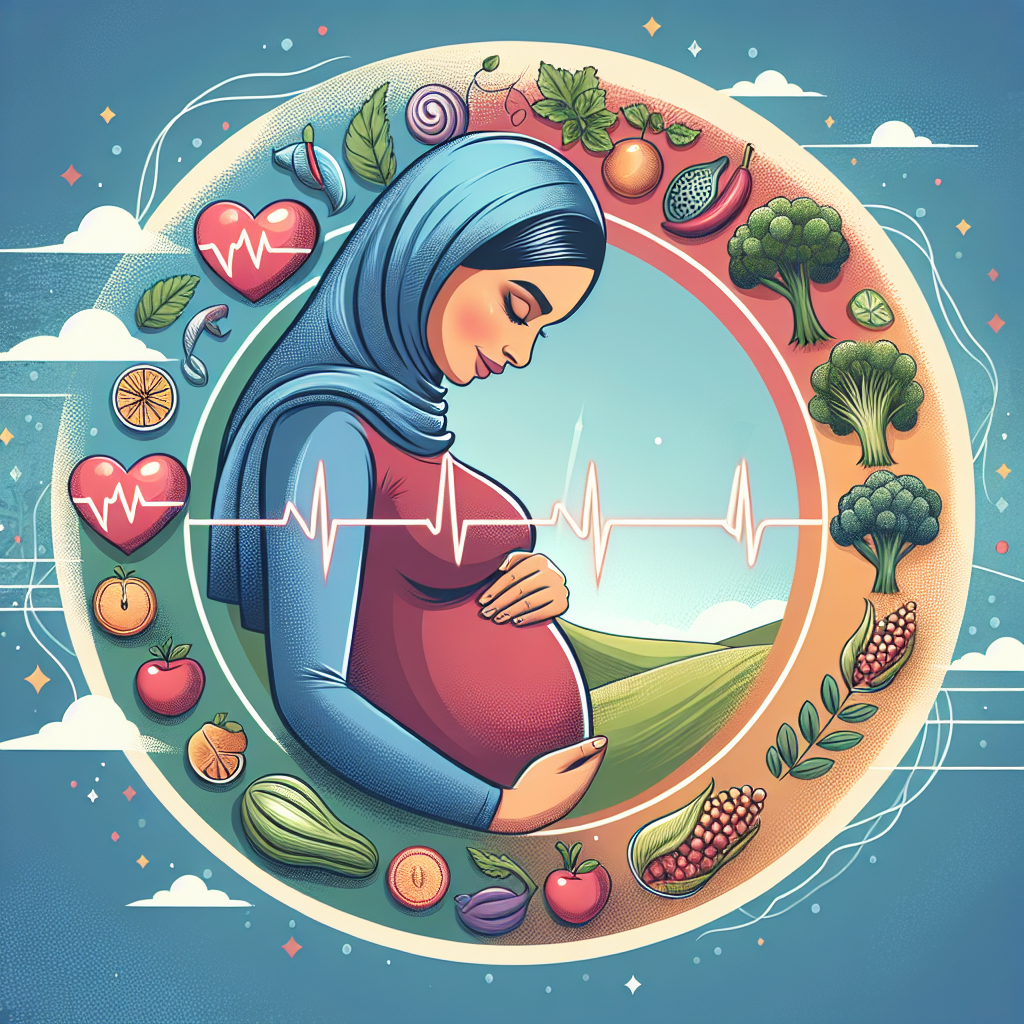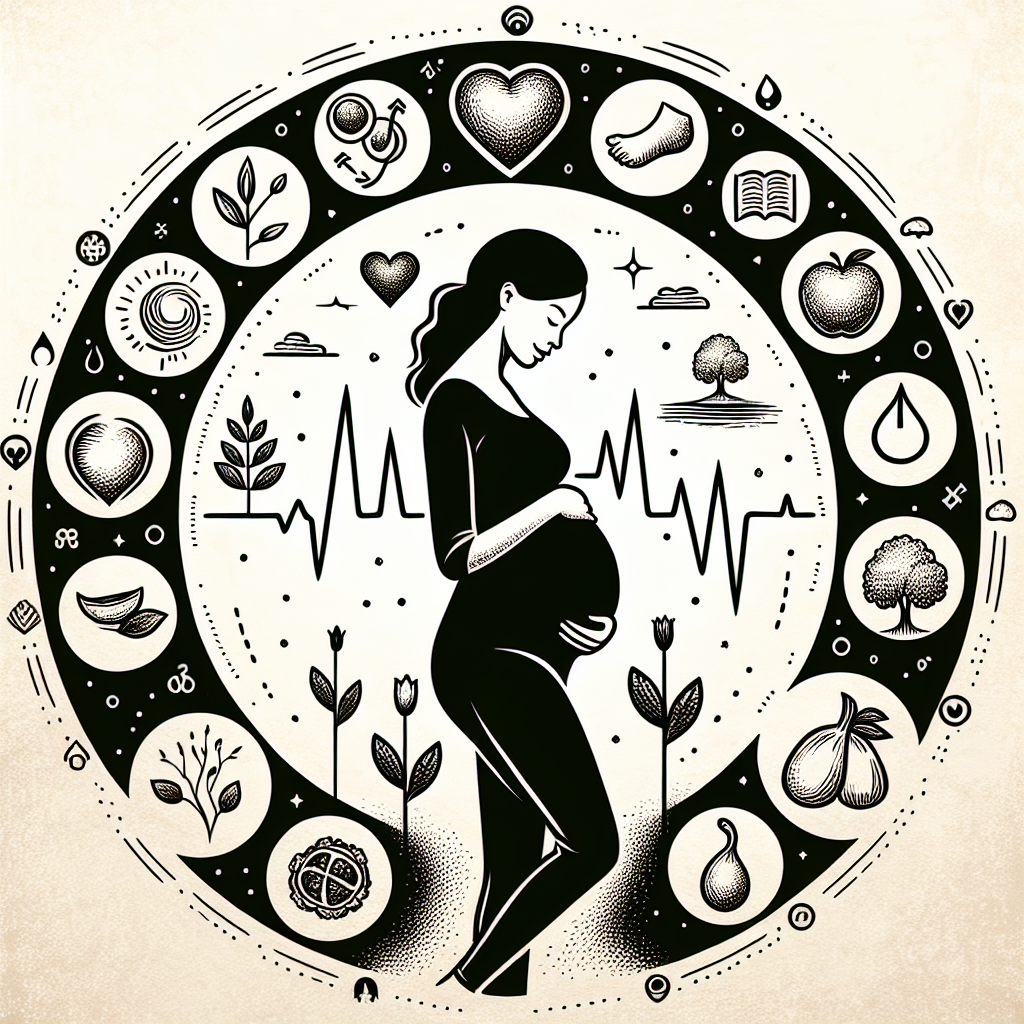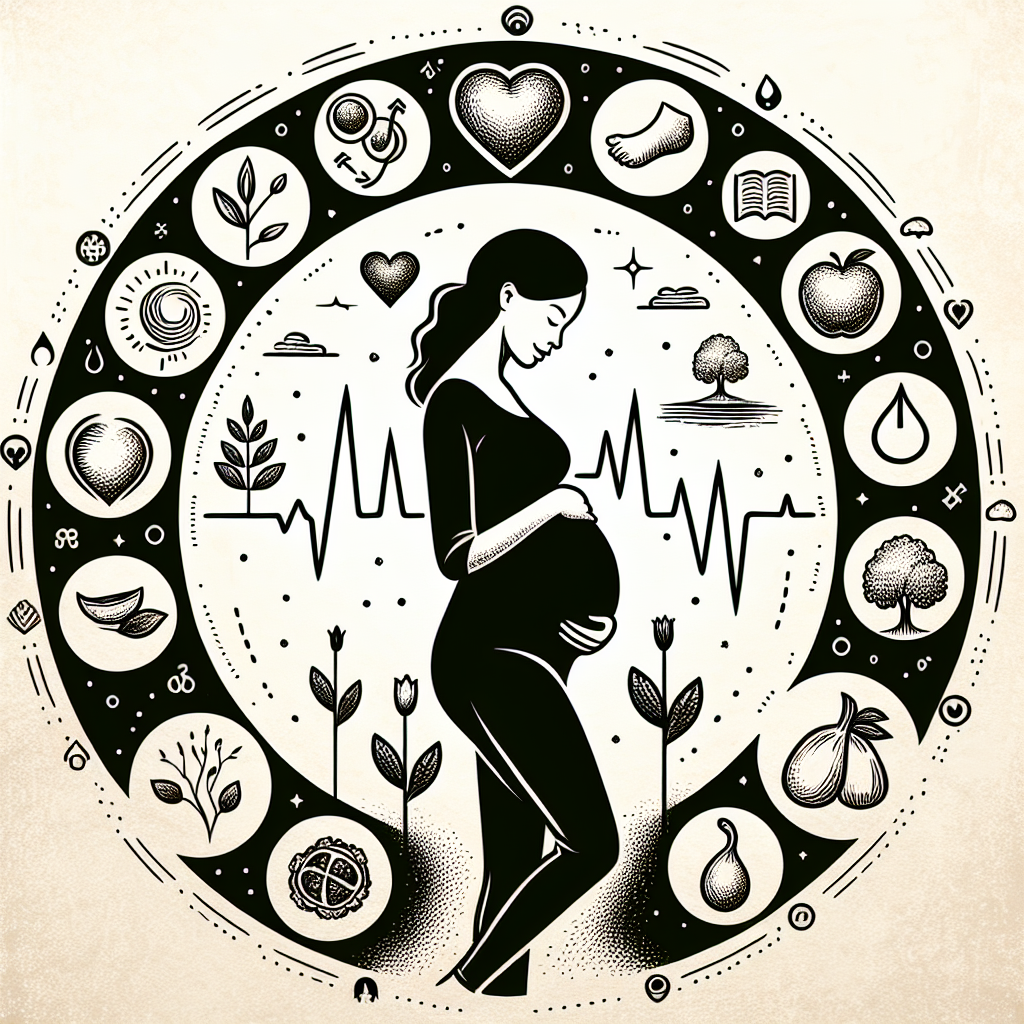Embark on a fascinating journey through the very inception of a new life, as you explore the Crucial Factors in the First Two Weeks of Pregnancy. Your body embarks on a miraculous process during this early stage, setting the foundation for a healthy pregnancy. This pivotal period involves key elements such as the timing of fertilization, hormonal changes, the role of nutrition, and essential prenatal care. Understanding these factors can significantly impact both your well-being and the development of your baby, guiding you towards a path of informed and proactive steps during these initial days of your remarkable adventure into motherhood.
Understanding the First Two Weeks of Pregnancy
What happens in the body?
During the first two weeks of pregnancy, your body is actually preparing for the possibility of conception. Technically, the countdown to the due date begins from the first day of your last menstrual period, even before you become pregnant. In these preparatory stages, your uterus is shedding its lining from the previous cycle—a process known as menstruation.
Key developmental milestones
At this early stage, the key developmental “milestones” are happening inside your ovaries. Follicles, each containing an immature egg, are developing and preparing for ovulation. Although you’re not pregnant yet, these initial steps are essential for what’s to come.
The role of hormones: Estrogen and Progesterone
Estrogen and progesterone play pivotal roles during these first two weeks. Estrogen is helping to rebuild the lining of your uterus, creating a nutrient-rich environment for an embryo to grow. Progesterone, which will surge after ovulation, helps to maintain this lining and prepare your body to support a potential pregnancy.
The Menstrual Cycle and Ovulation
Understanding your menstrual cycle
Your menstrual cycle is the monthly series of changes your body goes through in preparation for the possibility of pregnancy. It’s split into phases: the menstrual phase, the follicular phase, ovulation, and the luteal phase. Each phase has distinct hormonal changes, preparing your body for both ovulation and the potential for pregnancy each month.
Determining your fertility window
Your fertility window is the period during which intercourse can lead to pregnancy. It includes the day of ovulation and the five days preceding it. Sperm can live inside your body for up to 5 days, so having sex before ovulation can result in conception when the egg is released.
The process of ovulation
Ovulation is when a mature egg is released from one of your ovaries. It travels down the fallopian tube, making it available to be fertilized. Ovulation typically occurs midway through your menstrual cycle. If your average menstrual cycle is 28 days, you’ll likely ovulate on day 14.

Conception: The Moment Pregnancy Begins
The meeting of egg and sperm
Conception is the magical moment when a sperm cell successfully fuses with an egg cell in the fallopian tube. It’s a race for the sperm to reach the egg, and only the strongest will succeed. This union forms a whole new entity with its genetic code—a combination of both yours and your partner’s DNA.
Genetic combination and zygote formation
Once the sperm penetrates the egg, the genetic material combines to form what is now called a zygote. This single cell contains all the information needed to develop into a complex human being. It’s the very start of pregnancy, although it will be a couple of weeks before you can confirm it with a test.
The journey to the uterus
After fertilization, the zygote begins to divide and form a cluster of cells as it makes its way to the uterus. A few days after conception, this cell mass, now called a blastocyst, reaches the uterus, where it will try to implant itself into the uterine lining.
Implantation: Securing the Embryo
The implantation window
The implantation window is a period when the uterus is ready to receive the embryo. Approximately six to ten days after conception, the blastocyst attaches itself to the uterine wall. Not all fertilized eggs survive to this stage — implantation is a critical moment in pregnancy.
Signs and symptoms of successful implantation
Some women experience symptoms such as light bleeding or cramping, known as implantation bleeding. Others report feeling nothing at all. Because these symptoms can be similar to the onset of menstruation, they can be easily overlooked or mistaken.
Factors that affect embryo implantation
Several factors can influence implantation, including the quality of the embryo and the receptivity of the uterine lining. Lifestyle choices, stress, and various health conditions can also affect your body’s ability to successfully implant an embryo.

Health and Nutrition
Nutritional requirements for early pregnancy
As soon as you’re trying to conceive, nutrition becomes crucial. Eating a well-balanced diet supports your reproductive system and prepares your body to nourish a developing fetus. Adequate calories and a diverse range of foods are important to meet this new demand.
Important vitamins and minerals
Vital nutrients for early pregnancy include folic acid, iron, calcium, and omega-3 fatty acids. These assist in vital functions such as preventing neural tube defects, building strong bones, and ensuring the health of you and your baby.
Foods to avoid during early pregnancy
Avoid foods prone to contamination, such as raw fish, unpasteurized cheeses, and deli meats, to reduce the risk of foodborne illnesses. It’s also advisable to limit caffeine intake and eliminate alcohol consumption during early pregnancy.
Lifestyle Adjustments for a Healthy Pregnancy
Managing stress and rest
Managing stress is critical in early pregnancy. High stress levels can affect hormone balance and potentially impact the chances of successful implantation. Ensuring you get adequate rest is also vital for both your own well-being and the development of the baby.
Avoiding harmful substances
Steering clear of harmful substances such as tobacco, alcohol, and other drugs is essential. These can interfere with the development of the fetus and lead to long-term health problems.
Physical activity and pregnancy
Moderate physical activity can be beneficial during early pregnancy. It helps in managing weight, reducing stress, and improving circulation. Always listen to your body and discuss exercise plans with your healthcare provider.
Medical Consultation and Prenatal Care
When to seek medical advice
Seek medical advice before or as soon as you think you might be pregnant. This enables early prenatal care, which is crucial for monitoring the health of both you and the developing fetus.
Important medical tests and screenings
Early medical tests and screenings may include blood tests, ultrasounds, and genetic screenings. These help in detecting any potential issues early on, allowing for timely interventions.
The role of prenatal vitamins
Prenatal vitamins help cover any nutritional gaps and provide essential nutrients like folic acid, which is key in the earliest stages of fetal development. These should be started before conception when possible or as soon as you learn you’re pregnant.
Emotional Well-Being and Support
The impact of emotions on pregnancy
Your emotions can have a significant impact on your pregnancy. Hormonal changes can affect your mood, and it’s entirely normal to have mixed feelings during this time. Allow yourself to experience these emotions and seek support when needed.
Building a support system
Having a strong support system of family, friends, and healthcare professionals can provide comfort and assistance. They’re a valuable resource for sharing concerns and celebrating milestones throughout your pregnancy journey.
Dealing with anxiety and fear
Pregnancy, especially for the first time, can be filled with uncertainty. If anxiety or fear feels overwhelming, talk to a professional who can provide guidance. Many find comfort in learning more about their pregnancy and connecting with others who are going through similar experiences.
Pregnancy Confirmation and Early Signs
Methods of confirming pregnancy
The most common method of confirming pregnancy is a home pregnancy test, which detects the hormone hCG in your urine. Blood tests at your doctor’s office can also confirm pregnancy, providing more sensitive and precise results.
Early signs and symptoms of pregnancy
Early signs can include missed periods, breast tenderness, nausea, fatigue, and frequent urination. Keep in mind that these symptoms can vary widely and may not be definitive indicators of pregnancy on their own.
When to take a pregnancy test
The best time to take a pregnancy test is after your period is late. Testing too early might result in a false negative because the levels of hCG in your urine may not be high enough to detect.
Importance of Community Knowledge and Public Health Information
Seeking information and guidance from healthcare providers
Healthcare providers offer a wealth of information and can guide you through your pregnancy journey. They’re there to support your health and the health of your baby.
Participating in prenatal classes
Prenatal classes are wonderful resources for education on childbirth, breastfeeding, newborn care, and coping strategies. They also provide the opportunity to connect with other expectant parents.
Leveraging community resources
Community resources can offer additional support services, such as nutritional programs, counseling, and access to child care essentials. Don’t hesitate to reach out to local organizations if you need extra help. Remember, it takes a village to raise a child, and there is strength in community support.


